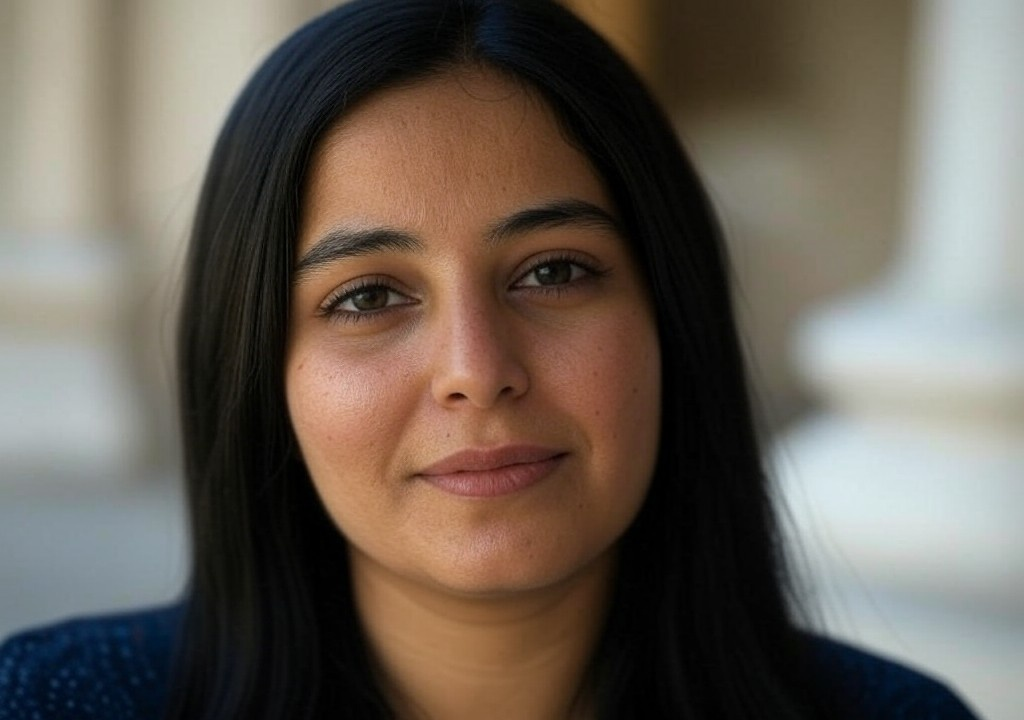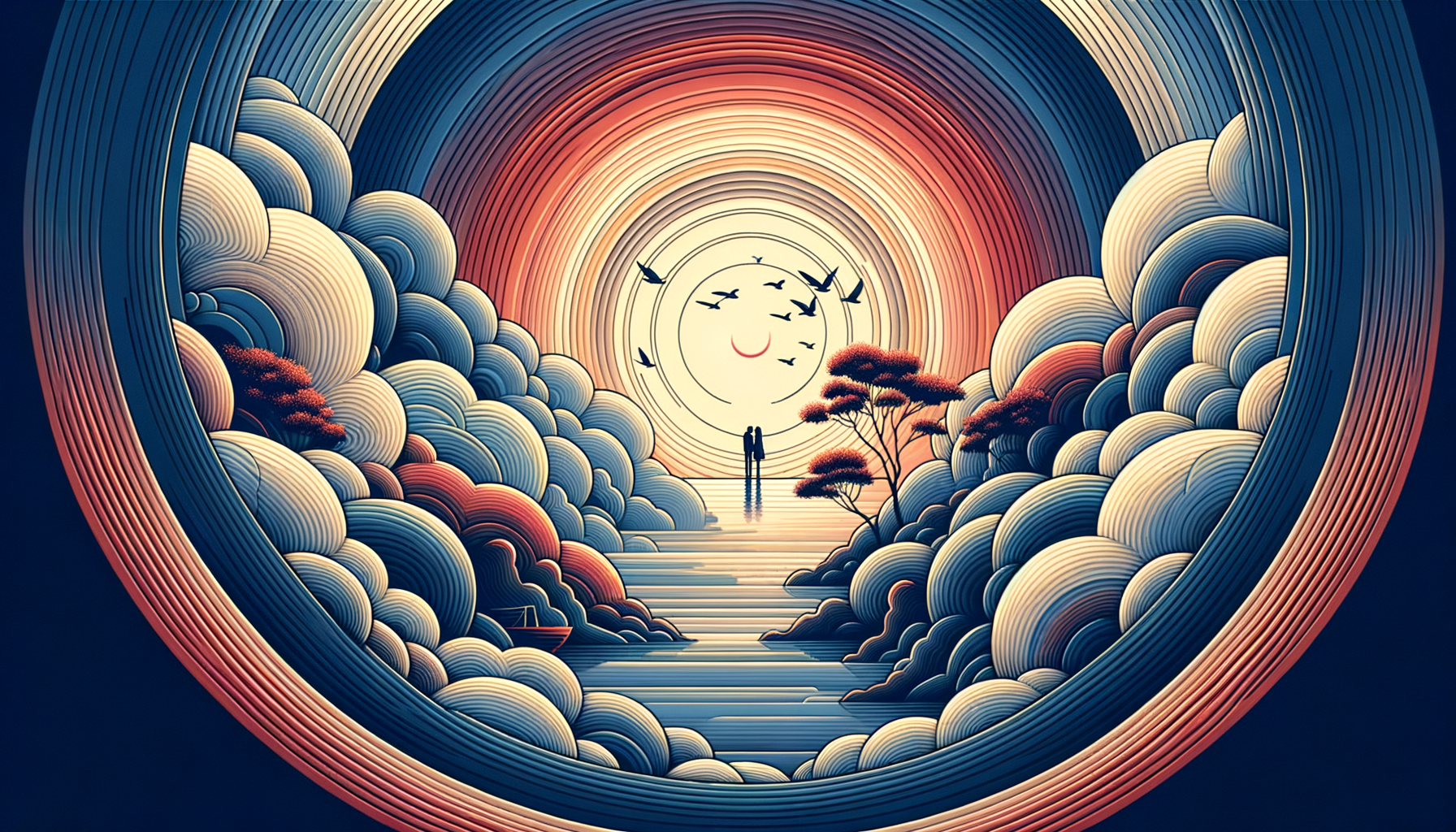Growing up, my family liked to say that everyone is carrying a story. Some people simply wear theirs louder than others. In my family, stories weren’t whispered or tucked away — they were shouted, joked about, and occasionally weaponized over cups of steaming cardamom tea. They weren’t just stories; they were the threads stitching us together, weaving us into who we were individually and collectively. And let me tell you, those threads were intricate, tangled, and wildly colorful.
The Matriarch Who Could Predict Love
We’ll start with my grandmother, Teta. She was the sun around which the Ahmed family universe orbited, a tiny Egyptian woman with a laugh so loud it could put Cairo traffic to shame. Teta swore she could predict a person’s love life based on the way they carried themselves at the dinner table. Apparently, how you handled fish, a notoriously bony protein, said volumes about your romantic future — “See how he’s picking it apart, Zahra? He’s patient. Patient men make wonderful husbands,” or “May all the prophets forgive this kind of gusto; he’s more smitten with the rice than you!”
Her predictions weren’t always accurate (my cousin still politely reminds Teta that she misjudged her now-husband for being “too cautious with soup”), but they carried an electric sense of importance. It made me hyper-aware of everyday rituals, the small gestures we exaggerate or downplay to impress someone — the things we do to convey, “I’m worth falling for.” Teta’s proclamations were entertaining, yes, but they also planted a seed in my mind: relationships, much like fish dinners, required discernment and careful work.
A Tale of Two Love Stories
When I was thirteen, my family moved from Alexandria to Paris. I quickly learned that in our bicultural bubble, we didn’t just tell our own stories — we became stewards of others’ romances, too. Take my parents, whose intercultural marriage was a favorite in our repertoire. My Egyptian mother married my French father after a whirlwind courtship involving heated debates about existentialism (my dad was convinced Sartre was misinterpreted by mainstream readers; my mom said it didn’t matter because his work was bad for morale anyway). Their marriage was a landmark — celebrated but loaded with the weight of a puzzle few dared to solve: how to balance a romance between two cultures without losing parts of yourself.
Then there was my Uncle Khaled’s story — one told so often, it became family gospel. Khaled had fallen madly for a Lebanese girl who only ever answered his letters in riddles. Poetic? Yes. Exhausting? Absolutely. But when Khaled finally cornered her at a wedding (the most acceptable showdown venue in Arab culture), she confessed she’d written in riddles to weed out suitors who weren’t clever enough to keep up. They’ve been arguing playfully ever since, and Photoshopping each other’s bad passport pictures to this day.
These parallel stories — my parents’ intellectual sparring and Khaled’s trial-by-enigma romantic pursuit — introduced me to the paradox of family: they teach you who you are while, at the same time, challenging you to be something entirely new. Growing up between Alexandria and Paris, these stories underscored the creative chaos that often accompanies a search for connection. It’s not neat. It’s not linear. And sometimes it’s irritatingly elusive, like a riddle never fully solved.
Hand-Me-Down Wisdom (and Detours)
When you’re raised in a family like mine, you don’t really date — not in the carefree, messy way pop culture implies you’re supposed to. Dates came with post-mortem analyses finely tuned over generations. By the time I brought a boyfriend home for dinner at 22, I felt less like a plus-one and more like an underqualified contestant at a family cooking show.
My aunts, of course, had opinions reserved for dishing out after dinner: “Zahra, he laughs too much when there’s no joke. Be careful; it’s always the loud ones.” My uncle tried to bond with him over football but was horrified he supported PSG instead of Marseille. (I nearly told them about his truly unforgivable crime of calling harissa “that spicy paste,” but I wanted to survive the evening.)
But here’s where my family surprised me. Underneath the endless commentary, unsolicited advice, and critiques wrapped in love, there was a deeper lesson to uncover: you don’t pick a partner in isolation. Like it or not, your family is always the third person in the relationship. They’re in the way you speak, the values you hold, and yes, sometimes, even in how you season your food. You’re choosing someone to join this cacophony of storytellers, to craft new chapters that intertwine, lovingly and chaotically.
Lessons in Belonging
Now, I’d be lying if I said my family’s influence stops with romance. That would be far too simple. In fact, they sometimes remind me of the classic movie plots I clung to as a teenager — they bring drama, conflict, plot twists that make you laugh and shout at the same time. Like that one moment in My Big Fat Greek Wedding when the Portokalos family swarms the unsuspecting groom-to-be with their larger-than-life ways. In a sense, my family rewrites that scene over and over.
Though, as an adult shuffling between balady bread in Cairo and baguettes in Parisian boulangeries, I’ve found myself rewriting something else, too: my own definition of belonging. At its heart, family forces you to sit with the contradictions. Like how you can adore someone while simultaneously wishing they'd stop giving side-eye to your career choices — or how you can cherish their romantic advice but know they’d probably faint if they read your dating WhatsApp messages. (Sorry, Teta!)
Still, those contradictions hold beauty. Life, I’ve learned, is like Teta’s infamous fish metaphor: a balancing act between careful patience and bold choices. You fashion yourself amidst the lessons and laughs, and when life gets messy, you reach inside for the stories that keep you grounded and moving forward.
Embrace the Plot Twists
So, what do you do with a family like mine? You embrace the chaos, stitch their wit and wisdom into your own story, and embrace the plot twists they inadvertently train you for. Being part of a family that holds traditions loudly while living in a world steeped in change has taught me that love — familial, romantic, and self-directed — isn’t supposed to look perfect. It’s the flaws, the riffs, the overcooked advice that makes relationships worth betting on.
Teta might not get it right every time, and Aunt Samia’s opinions might sometimes come as sharp as vinegared pickles. But the stories they’ve shared? Those stay with me, illuminating the way forward whenever life decides to serve me something full of bones.
So here’s to family — the mess, the magic, the muscle memory of navigating through both.




















